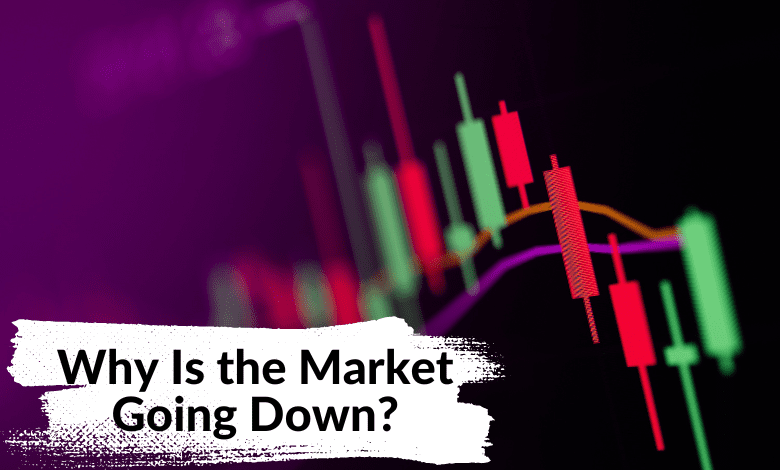Let’s start a journey to uncover the secrets of market downturns. When the market sinks, many wonder what forces are at play.
The Nature of Markets
Markets, like oceans, are vast and unpredictable. Sometimes they’re calm, and other times they’re turbulent.
- Market Cycles
- Economic Growth: Periods of expansion and prosperity
- Recession: Short-term declines in economic activity
- Depression: Longer, more sustained downturns
- Recovery: The climb back to economic health
2. The Role of Sentiment
- Optimism: When investors feel good, markets go up
- Pessimism: When they’re fearful, markets tend to drop
- Have you ever felt that markets have a mind of their own? Well, they do!
- Not all market movements are organic. Sometimes, outside forces come into play
3. External Factors Influencing the Market
- Elections can introduce uncertainty
- Policy changes might not favour investors
- Wars and conflicts can disrupt trade
- Earthquakes, hurricanes, and other disasters can halt production
4. Technological Disruptions In our digital age
- Internal Market Mechanisms
- Sometimes the market itself is the culprit
- Cyberattacks can destabilize significant industries
- New technology can make old industries obsolete
5. Interest Rates and Monetary Policy
- Higher rates can lead to decreased spending
- Monetary policy can influence investor confidence
- Central banks adjust interest rates
- Ever heard of the saying, “Money makes the world go round?”
6. Inflation and Deflation
- Inflation erodes purchasing power
- Deflation can lead to reduced consumer spending
- They bring overvalued stocks back to reality
- Corrections are 10% declines after a significant upturn
7. Behavioral Factors
- Human behaviour plays a massive role
- Investors can be influenced by others
- Panic selling can exacerbate downturns
- Heard mentality Have you ever followed a crowd without knowing why?
8. Overestimating our investing skills can be dangerous
- Overestimating our investing skills can be dangerous
- Misinformation can lead to poor decision-making
- Information Overload In the age of information
- Overconfidence Sometimes, our egos get the best of us
Conclusion
Ending markets are complex things affected by a great number of causes that produce an effect. From external events to our own behaviours, many elements can push markets into a downward spiral. But remember, downturns are a natural part of market cycles. They offer opportunities for reflection, adjustment, and growth.
FAQs
- Why do markets have cycles?
Markets reflect economic activities and human behaviours, which naturally have ups and downs.
2. How long does a market downturn usually last?
It varies. Recessions can last months, while depressions can span years.
3. Are market downturns always bad?
Not always. They can offer buying opportunities and market corrections.
How can I protect my investments during a downturn?
Diversifying your portfolio and consulting with financial advisors can help.
What role do governments play in market downturns?
Governments can influence markets through policies, regulations, and interventions.
Is it wise to sell during a market downturn?
It depends on individual circumstances, but selling in panic can often lead to losses.
How does technology impact market dynamics?
Technology can introduce new industries, disrupt old ones, and influence market behavior.
How do I stay well-detailed about market tendencies?
Regularly following financial news, analyses, and consulting experts can keep you updated.

